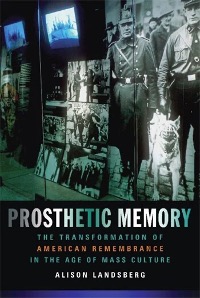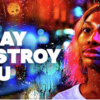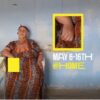This text is licensed under the Creative Commons license Attribution-NonCommercial-ShareAlike 4.0 International. The link to the original material is situated at the top right of the text.

Source: https://cup-us.imgix.net/covers/9780231129275.jpg
Book
Keywords: cultural memory, collective memory, empathy, mediation of knowledge
Threads: Remembering, Cooperating with(in) arts and culture, Learning
Prosthetic Memory. The transformation of American remembrance in the age of mass culture.
Alison Landsberg
2004
Keywords: cultural memory, collective memory, empathy, mediation of knowledge
Threads: Remembering, Cooperating with(in) arts and culture, Learning
Short description
With her concept of ‘prosthetic memory’, Alison Landsberg proposes an idea on the question of how media texts convey knowledge about events in which the media users themselves did not participate. Using texts from US cinema, television and literature as well as the example of experiential museums like the National Holocaust Museum in Washington, DC, she claims that in modernity, mass media create the possibility for new forms of social memory: By creating an immediate, visceral and affective engagement with past events, media settings such as cinemas or experiential museums provide what Lands-berg labels ‘prosthetic memory’.
Personal appreciation
In the context of our reflections on subaltern knowledge, it is fruitful to think not only about alternative agents and contents of knowledge, but also about different forms of knowledge and their mediation. Reflections on the nature of knowledge in philosophical epistemology encourage to reconsider the common academic practice of equating knowledge with propositional knowledge. Recent research in philosophical aesthetics under-lines the potential of literature and other arts to produce and convey different forms of non-propositional knowledge, such as procedural, perspectival, empathetic, and moral knowledge. In this line of thinking, Alison Landsberg’s concept of ‘prosthetic memory’
Contribution to the "Who knows?" handbook
Through empathic understanding, what Landsberg calls ‘prosthetic memory’ grants access to experiences lived by other individuals, even by members of social, national, ethnic, or religious groups that are different from one’s own. This opens the possibility of bridging perceived and actual differences in order to form “progressive political alliances and solidarities” (p.143). However, engaging in prosthetic memory is not about blurring those differences and appropriating foreign experiences without reflection. In fact, “in its more radical form, prosthetic memory generates difference, teaches people about otherness, and makes possible a politics that challenges dominant, and often oppressive, ideologies” (p.80).
Material(s)
Additional Information
| Location | New York, USA: Columbia University Press. |
| Original language(s) | English |
| Existing translations | |
| Length | 240 pages |
| Project runtime | - |
| Institution of affiliation | |
| Sponsor(s) |
Name of contributor: Katja Hettich
Additional Pictures
Creative Commons
Related Contributions

TV Miniseries
I May Destroy You
Michaela Coel
2020
Still a rare example of art that challenges patriarchy and the violence this dominant system produces in everyday life from a Black FLINTA (and in parts queer) perspective.

Event
Freiburger Filmforum
Freiburger Filmforum Team
2021
The film festival is particularly interested in paying attention to groups, cultures and milieus that are often overviewed by the ethnocentric gaze of many European film festivals.







